Faith no more: how losing her religion saved Sarah Blasko
From an apocalypse-obsessed church to a busy family home, it’s been a long road for songbird Sarah Blasko, whose seventh album deals with highly personal subject matter.
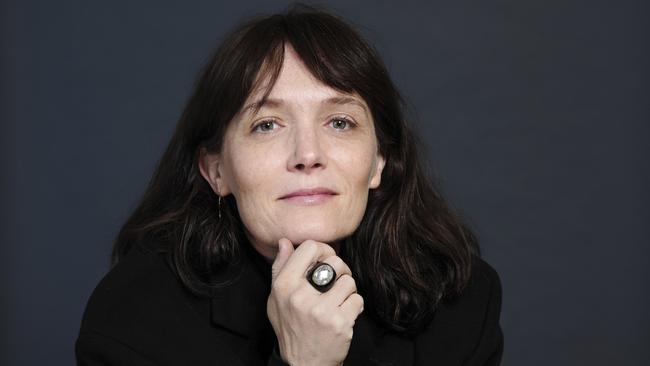
Sarah Blasko grew up believing the world’s impending end was not a matter of if, but when.
Such is life for those steeped in the Pentecostal faith, where notions of rapture are not so much an overture but a fact that underscores their every thought, action and relationship — until cracks form in that belief structure, and start to spread.
For Blasko, the chisel that began to chip away at her accepted worldview took the unusual form of a pair of interlinked documentary films screened at her church youth group when she was 12. Their intent was to deter young viewers from selling their souls to the devil known as rock ‘n’ roll by drawing long, dramatically overwrought bows between Satan and the work of some of the most popular recording artists of all time.
Instead, these propaganda films – issued in the late 1980s by a US Christian organisation named Reel-to-Reel Ministries – stirred in the child an equal and opposite reaction; one that would, in time, lead her down a career path that would establish Blasko as one of the nation’s finest singer-songwriters.
“It was actually a hugely educational thing for me, because they would show all of these classic rock songs, but they would show why they were ‘evil’,” recalls Blasko. “Songs like Another One Bites the Dust and Stairway to Heaven — it was my first time hearing them. Deep down, I think I was like, ‘This is all really cool. Maybe the devil’s way is the right one!’
“At the time, I was really into Whitney Houston, Aretha Franklin and Mariah Carey. When I felt really attacked was when they criticised a Whitney Houston song I loved, Saving All My Love For You (1985). I actually remember feeling incensed: ‘No-one’s telling me that that song is evil! Criticise Queen, criticise Led Zeppelin – but Whitney Houston? I don’t think so!’”
It’s a sunny morning in late August when Blasko greets Review at the door of her home in Sydney’s inner-west and leads us inside to chat about the confluence of personal and societal crises that led to the writing and recording of her newest music.
She carries inside her a strikingly effective instrument containing glints of honey, steel and gold, all within her remarkable vocal range.
Review readers know it well: as part of this organ’s Isolation Room video series in 2020, Blasko performed a devastatingly beautiful cover of her favourite love song, This Must Be The Place by Talking Heads, at her home piano.
Blasko’s most-streamed song on Spotify, meanwhile, is her extraordinary cover of Cold Chisel’s Flame Trees, which has amassed 9.6 million plays and was recorded for the soundtrack of the 2005 Australian film Little Fish.
Hers is simply one of the most arresting and spectacular voices in Australian music, and anyone who knows her only through these two covers is in for the treat of exploring her 20-year recording career to date.
Her seventh album – the wordily titled and piano-centric I Just Need To Conquer This Mountain – is soon to be released, and this interview is happening here, under her roof, because “it seems like I’m being welcoming, but I’m actually just being lazy,” she says, laughing. “Where can I do it, where I have to put in the least amount of effort…?”
She’s being facetious, of course: any notable artist willing to let a journalist inside their home is refreshingly open-minded in an era where highly curated social media posts and carefully controlled press interactions are the norm.
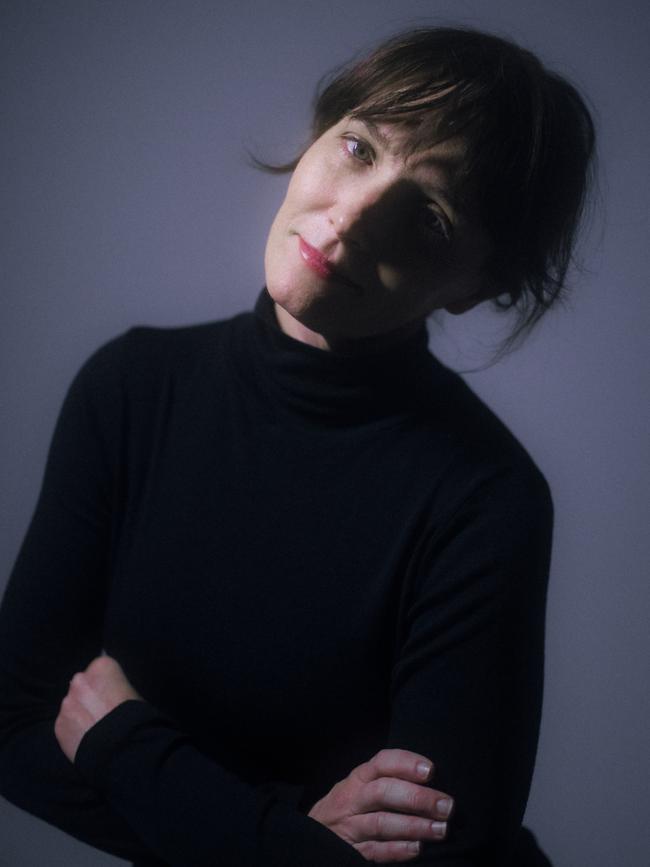
It follows that, amid jokes about ducking off to put on a load of washing, Blasko claims to be an open book, and across 90 minutes of wide-ranging discussion she proves as much.
The artist says she’s much more at ease in these situations than she was 20 years ago, when she rose to national prominence with her debut album, 2004’s The Overture and the Underscore.
“The person I was, the things I did, the way I led my life — it feels very foreign to me. I feel the confidence to talk about those times more than maybe I have (in the past), because they’re at quite a distance now: ‘All right, let’s open up the book about getting married and divorced in my 20s!’ ” she says with a laugh. “In some ways, it’s hard to see the similarities — but I think the combination of all of those things (meant) there was a lot to write about.”
Blasko wears a colourful dress that matches her lightness of spirit, and as we sit across from one another at her kitchen table, the coffee mug she hands Review bears the visage of a playfully pouting Paul McCartney — an odd facial expression from one of the greatest crowd-pleasers of all time.
Surrounding us is the stuff of family life: she shares this home with her partner, fellow musician Dave Miller — best known for his work with Sydney electronic trio PVT — and their two children, Jerry, 9, and Charlie, 4. The boys’ Lego has been neatly packed away, the iPads are charging, and a KISS-themed calendar notes handwritten dates marked “Mum away”, “Mum gig” and “Mum back!”
Not so long ago, attaining such a picture of full-house domesticity seemed all but out of reach, as she struggled to reorganise her life after disentangling herself from the religious indoctrination that coloured her adolescence and early adulthood. (“My dad was an atheist before he became a Christian,” she notes. “He’s probably horrified to think that the church’s mentality affected me in that way. I see the faith that he has is very separate to the church.”)
One key to begin unlocking this discussion is To Be Alone, the soaring and stirring penultimate track on her upcoming album, which Blasko describes thus: “I almost didn’t include that song because I was just like, ‘Oh god — this is a bit too raw…’ ”
In its autobiographical opening verses, she sings:
I came out of a marriage when I was only 26
I vowed I’d never give up myself that way again
I’d never been alone, I’d never done whatever I wanted
So I relished the chance to start a life on my own
I used to think that I was running from the past
It was romantic to be a fugitive at last
I used to pride myself in the selfishness I had
How far I’ve come from that…
“I had my religious teenage years, and then I married my first love at 21; I hadn’t really had a relationship before that,” says Blasko, now 48. “I saw the humour in the fact that I left the church, I left the marriage, and then I was living with complete strangers. It was really tough; it was the toughest part of my life, I think, when I was living in that sharehouse when I was 26.”
It was around this time that her music career began to take flight, and she began writing what would become her debut album.
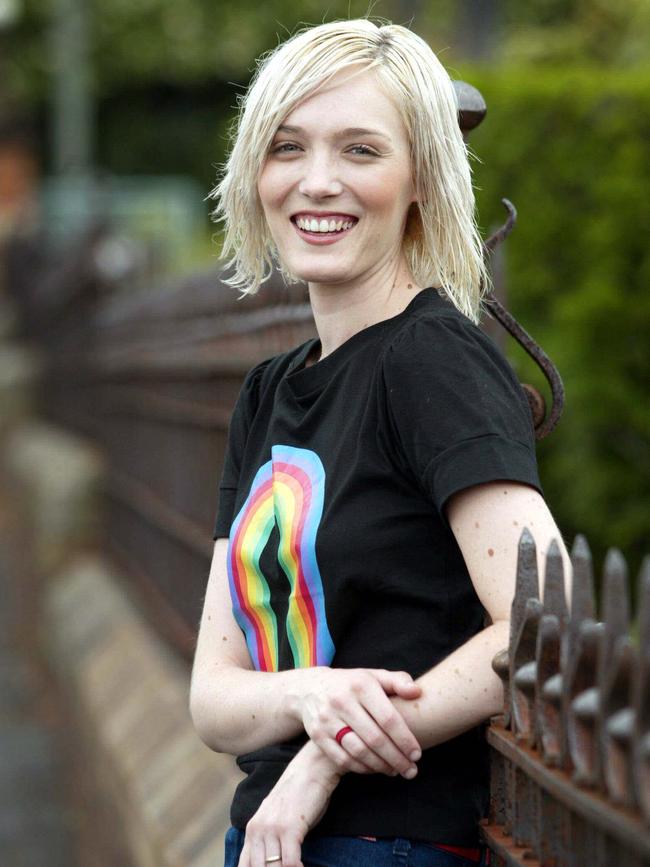
“I was really lost; I didn’t know how to operate in the world, so I was mostly just drinking and hanging out at peoples’ houses, all these new friends around Newtown,” she says, referring to the inner-city Sydney suburb. “I went from not knowing how to live on my own, and then eventually loving living alone, in my early to mid 30s.
“I think I always wanted to be with somebody and have a good relationship, and have children and stuff like that – but when you reach that age you think it’s probably not going to happen. But then I met Dave when I was 37 or something, and we quite quickly had a kid – I had Jerry when I was 38 or 39 – and then two kids. It’s crazy how your life can take a turn like that.”
That turn, too, is captured in the chorus of To Be Alone, where she sings:
Now I’m running home
Where my baby’s crying
No time to be alone and wonder who I am
I’m getting on, so there’s no use in fighting
We’ll never have the chance to live this time again…
“The song is about loving being able to look back that I did those things. I’m glad that I left that marriage and went on that quite difficult path. I had to make up for lost time, I guess; I’m glad that I went out and explored the world. But now, there’s very little time to look at who you are anymore – you’ve got to do it in five-minute bursts,” she says, with a laugh familiar to many parents of young children.
In an interview around her last album release, 2018’s Depth of Field, Blasko said she sometimes wished she hadn’t revealed the fact of her motherhood in the context of her music career. Lest this is all getting too personal, Review reminds her of that comment from six years prior, which she greets with a shrug.
“I’m done with caring,” she says. “I don’t know; maybe I’ll care later when I see (this article). I think that the record touches on those things; it depends on how you frame it, I guess. I’m kind of an open book, really. The only thing that ever worries me about being an open book is that, if you know too much about an actor, it affects how you see them on screen.
“It’s probably the same in music, because I think it’s important that people take some of what I intended into listening to it,” she says. “But then, on the other hand, I always want people to take what they want from it, as well.”
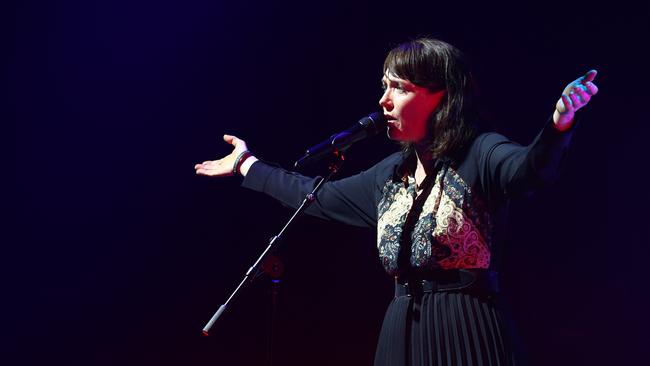
In a screen-dominated world where mystique is in short supply, Blasko bristles at the thought of sharing too much of herself as an artist.
“I can’t stand people doing that. It kills me, particularly when I see people trying to convince you to buy tickets for their shows,” she says with a laugh. “Even if, behind the scenes, I’m like, ‘Please, people, buy some tickets!’ – I just could never do that.”
At this, she quotes a line from When I Grow Up, a 2009 song by Swedish electronic artist Fever Ray: I’ve never liked that sad look from someone who wants to be loved by you.
“That’s how I feel on social media, because it’s a look of desperation, or ‘Like me!’ or whatever. I can’t do it. I couldn’t do it if I tried. That’s the only bit of advice, if anyone ever even bothers to ask me,” she says with a laugh. “You have to be in touch with your inner-self. The idea of viewing yourself from the outside all the time is death to anybody — let alone somebody who’s trying to do something creative, or trying to do something individual.”
Although this album was written during 2020, in the throes of the pandemic, there were a couple of other major life events in play for Blasko: she was heavily pregnant with her second son Charlie, and one of her longest and strongest friendships was breaking down.
“It was very dramatic timing, because I was having a baby, the world was ending, and then this friendship was ending — and the friendship came from a really fanatical church that I went to, where they were always talking about the world ending,” she says. “It felt like there was a real poetry, or absurdity, to these two friends who met in this fanatical church believing that the world would end before they were 30 years old — then their friendship ends during what felt like, at the time, the apocalypse.”
The loss of that friendship stung, and still stings, naturally. But for a songwriter, it eventually proved to be fertile creative soil, and the way in which their lives were intertwined with Blasko’s former churchgoing became a running theme in these 10 songs. In fact, it’s right there in the first lines of opening track The Way:
Met you in church when God was on my side
You said goodbye when it all went to hell
Met you when I was young, left me alone when I grew wise
So these days I just cry and yell …
But rather than dwelling on that matter, the album takes a turn in its latter half: as well as the domestic realism of To Be Alone, there’s Dream Weaver – a song written for her late friend and much-liked music industry worker Greg Weaver, who died of a heart attack in 2019, and who was also immortalised in song and in nickname by Tim Freedman, on The Whitlams’ 2022 album Sancho.
The closing track is a Blasko treasure of the shiniest and most evocative variety. On Divine, she focuses on the joy to be found in small things – in particular, the two boys she’s raising in this house with Miller. In its chorus, she sings:
You hand me the morning with a look in your eye
Calling out my name like a song you devised
Walking over my heart one sweet step at a time
You came to remind me: oh this life, oh this life is divine.
“For me, that felt like a good way to end the record, because I think that’s the beauty of having a family: they’re a constant reminder of being here now,” she says. “It’s very important to see hope in the world, and children are the perfect teachers of that.”
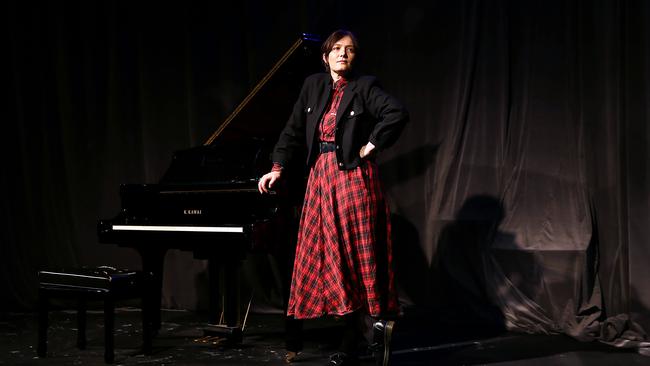
Given the extensive meditation on outgrowing what she was taught earlier in life, ending the album in this manner sees the singer-songwriter transcending the apocalyptic mindset with which she was raised.
“That’s why the song is about life being divine: the emphasis there (in church) is always on the afterlife, and that’s when you reach some kind of point of divinity, or whatever,” she says. “To me, it’s always really important to be firmly aware that there’s a lot of good in the world, because there’s no point thinking the opposite.”
The McCartney mug has long since been drained, but before we say our goodbyes, Blasko hops up and steps from her kitchen table to the piano – the same one where she filmed that gorgeous Talking Heads cover in 2020 – to generously give a private concert for Review, which we filmed for your benefit.
With ease and very little warm-up, she closes her eyes and moves through the chord progressions of three songs – two from her new album, plus an older favourite – while unsheathing her dagger of a voice. This extraordinary sound fills the room, and when paired with her hard-earned lyrics and melodies, there’s only one word for the combined effect: divine.
I Just Need To Conquer This Mountain will be released independently on Friday, November 1. Sarah Blasko’s eight-date album tour will begin in Hunter Valley (Dashville Nights, November 15) and end in Perth (December 13).




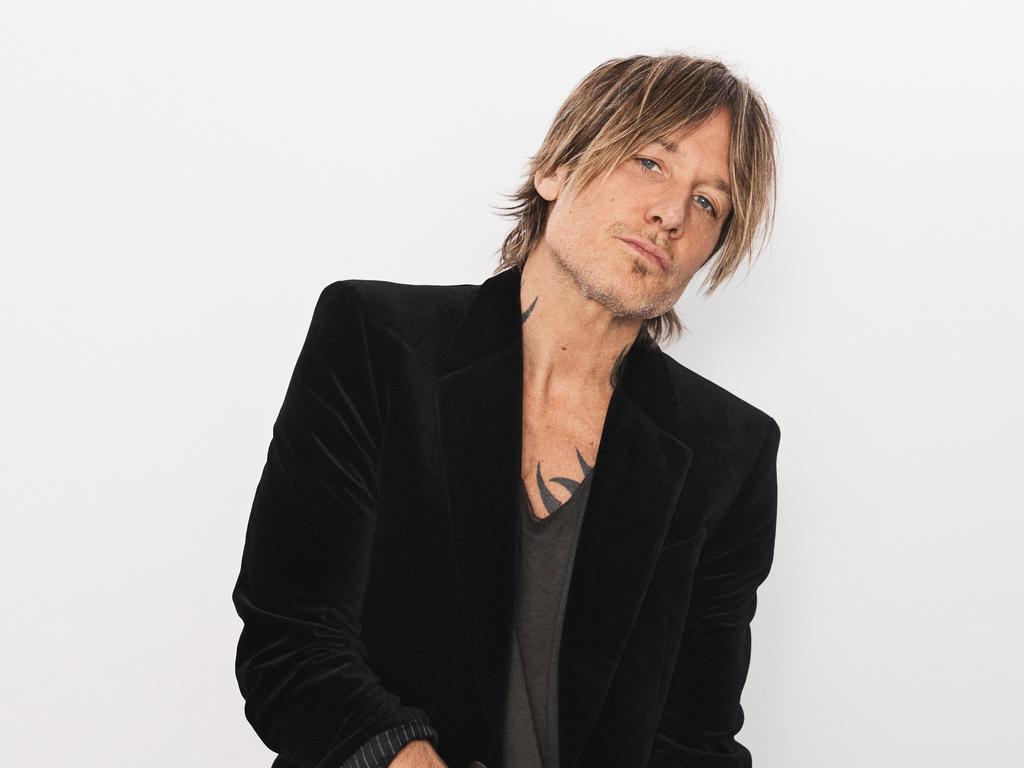
To join the conversation, please log in. Don't have an account? Register
Join the conversation, you are commenting as Logout